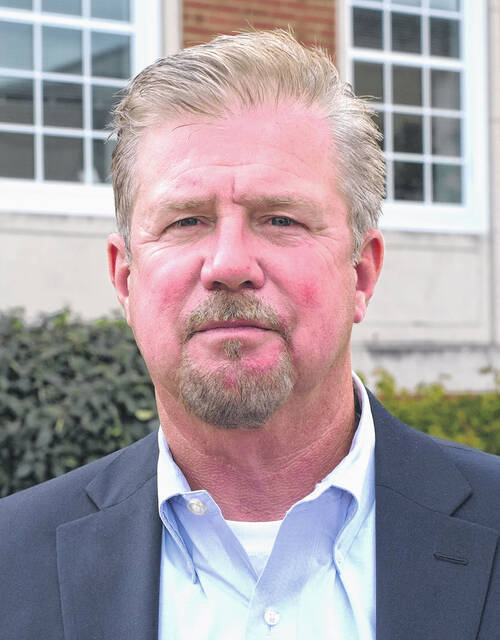
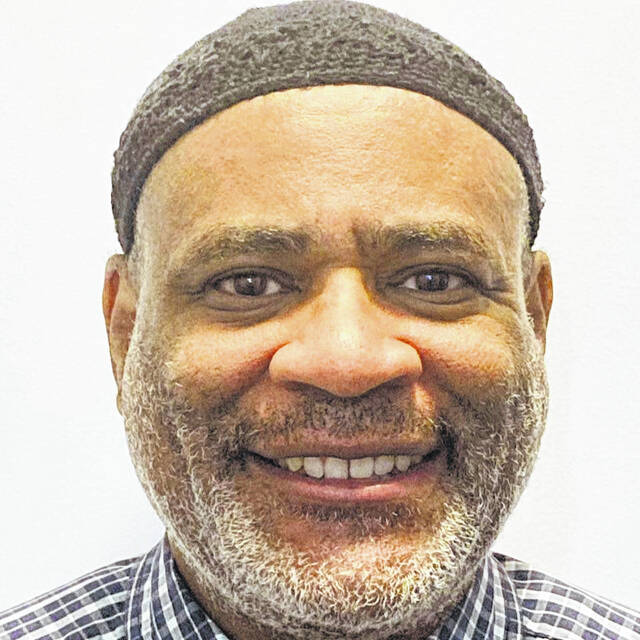
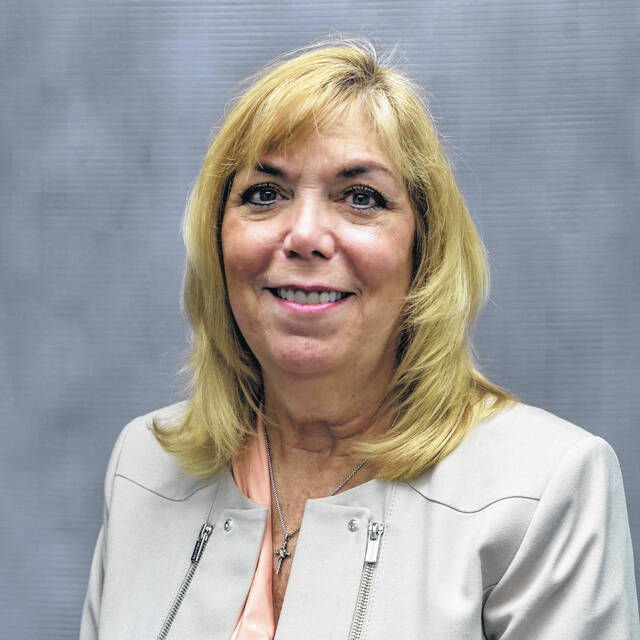
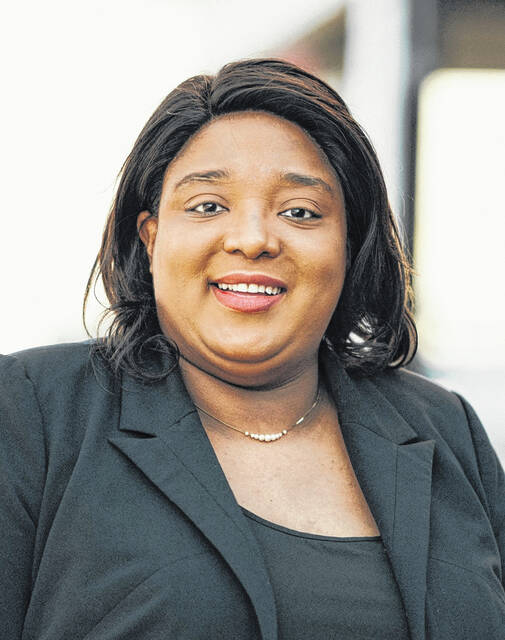
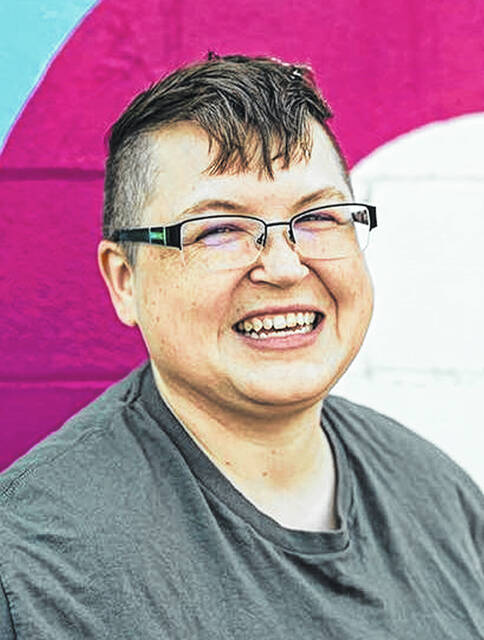
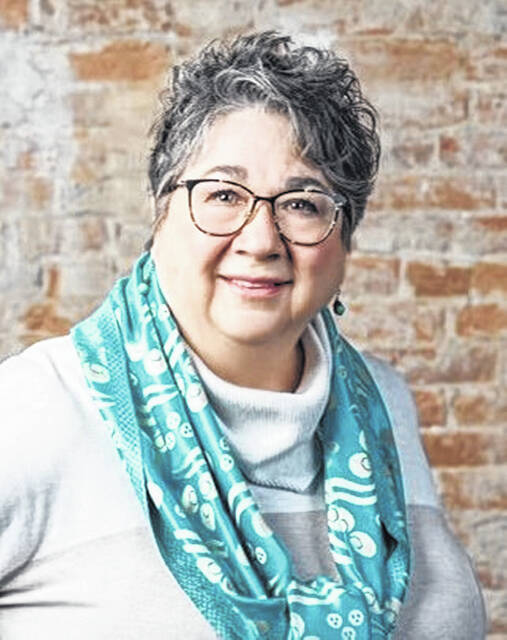
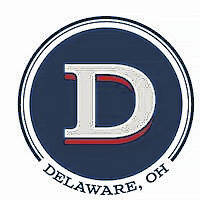
The Delaware City Council at-large race includes six total candidates running for three open seats. Two incumbents in current mayor Carolyn Riggle and vice mayor Kent Shafer are seeing reelection, while four newcomers in Catlin Frazier, Mark Butler, Heather Rodenborg, and Linda Shearer hope it’s their turn to have a hand in shaping the city’s future.
Kent Shafer
Initially elected to council in 2013, Shafer is currently wrapping up his second term. He has served as vice mayor since 2015. In addition to his duties on council, Shafer also serves on the Finance Committee, Parking and Safety Committee, the Mid-Ohio Regional Planning Commission, as a Civil Service Commission liaison, and as the chairman of the board of directors for the Delaware County Finance Authority.
Shafer spent 33 years with the Columbus Police Department, retiring just recently, and continues to operate a consulting business handling matters of public safety.
Asked what he has been most fond of during his time on council, Shafer first pointed to the progress the city has made on parking, while also acknowledging that work needs to continue.
“The pandemic kind of put a halt to that,” Shafer told The Gazette. “We had plans for a hotel and a parking garage. We’re still going to pursue that, but that’s always been one of my top priorities. We have a great downtown, but we really need to work on parking.”
Shafer said one of the things he most appreciates about local politics is that people aren’t afraid to contact him about their problems, big or small.
“I find that people really appreciate that. Sometimes it’s a simple as me making a phone call to solve the problem, but they really appreciate the fact that someone took an interest in their problem,” he said.
As for why he chose to seek reelection, Shafer said he still has some goals that still haven’t been accomplished yet in the city. In addition to parking, Shafer said he wants to bring more commercial development into the city to increase revenues without having to go to the residents for additional tax dollars.
“To bring in commercial development, we have some challenges,” Shafer said. “One, we have to get the infrastructure in place. When companies are looking to move somewhere, they don’t want to wait a year for water and sewer or zoning. They want it ready to go. So that’s one of our challenges, how do we take that Sawmill (Parkway) corridor and get it primed for some commercial development?”
Shafer added of the challenges, “We have to have obtainable housing. We have to have housing that is priced in the market where workers working at these places can afford to live here.”
Shafer went on to say he hears often from residents about the need for more outdoor recreational space in the city, which he said he believes the city can make happen with the parks and recreation levy. He added that the Delaware Municipal Airport is an asset to the city that can be marketed better.
Carolyn Riggle
Riggle has served on council for 18 years, being elected to her first term in 2003. For eight of her years on council, Riggle has served as the city’s mayor, with an additional four years of service as the vice mayor.
Among her proudest accomplishments during her time on council have been the YMCA, the Rutherford B. Hayes statue, and the creation of the Veterans Park, which Riggle called her “pride and joy.”
Generally speaking, Riggle said she has enjoyed watching as the city of Delaware grows in every direction. Riggle acknowledged that many people dislike development at first, but she said when developments come to fruition and people realize that “growth can be good for all, it’s pleasing to me.”
Given the continued growth of the community, an increased burden is also going to be placed on the city to maintain its services provided to residents. Riggle said figuring out how to pay for those services is a challenge the city faces moving forward.
“Although we are growing with a lot more residential (development), that doesn’t help pay the bills,” she said. “Yes, we get the income tax, but so many people work outside of the city, therefore we give them a tax credit, and not enough money goes into the general fund. So that’s a big challenge while we add more roads, we add more trash pickup, and everything else.”
However, Riggle called growth “a good problem to have,” much like parking issues downtown, because it’s indicative of the allure of the city as a place to call home. “I could take you to small towns that don’t have this problem, but I’ll take these problems any day of the week over the alternative,” she said.
Riggle said road improvements is the No. 1 topic she hears most often from residents in the city about what they want to see in the community. She said the only way to fix the roads is to pass a dedicated tax levy for road improvements over a limited time frame.
Speaking on the need for more affordable housing in Delaware, Riggle said the city is getting “desperate” for reasonably-priced housing that mirrors more of the incomes in the city.
“What breaks my heart is when I have people working in jobs who are making $15-18 an hour, even maybe $20 per hour, and they cant’ afford to rent a place here, let alone buy a place here,” she said. “Therefore, they’re living in Marion, Morrow County, and Marysville and driving here. I have been saying for 10 or 12 years now that these developers come in and they want to build apartments, a portion of those apartments need to be for folks who can afford it.”
Riggle added that the city has already lost out on commercial development in the city due to the lack of workforce that is, by and large, a result of the lack of affordable housing in the community.
Catlin Frazier
A 10-year resident of Delaware, Frazier told The Gazette her interest in local government has increased over the past three years, leading her to attend council meetings regularly two years ago to become more involved in what was going on in her community.
“I was very interested in listening to what residents had to say in terms of the impact to them and their families,” Frazier said of attending council meetings. “That’s what really kind of drove me. Throughout that process, I started learning a lot about (the city’s) infrastructure and long-term growth, especially as it pertains to road infrastructure and the Point project, which I did provide some feedback on as an east side resident.”
With Delaware expected to continue experiencing considerable growth in the years to come, Frazier said road infrastructure will continue to be the most pressing issue facing the city.
“As we look at things like the expansion of the Point project, how do we accomplish that in a timely fashion so that residents can get some relief in the increase in traffic, especially at peak volume times of the day,” Frazier said. “I think you could poll any resident in the city and ask them whether or not it becomes more difficult year after year to commute from one side of the town to the other, and it has been more difficult.
“But it’s also making sure our corporate partners are along with that conversation as our roads are being used. We have both a U.S. and state highway running through our city. Making sure our corporate partners are a part of the infrastructure conversation (is important).”
As development continues to dominate the city’s future, Frazier said smart growth is also among the most important issues she wants to have a hand in directing as a member of council. Asked what smart growth means to her, Frazier said she identifies it as “growing with equitable access to new development.”
“I am very concerned about the cost of living for residents, both entering the community as well as our longtime residents,” she said. “I don’t want to see families that are middle to lower-income families priced out of living in our community because they are a welcomed and needed part of our overall community. I want to see housing prices that allow for multi-family homes that are reasonable and affordable.”
Frazier went on to say in July, “I want residents to know that I don’t think there’s any issue in a community that all of us cannot overcome. I am running a campaign solely focused on issues that matter to each and every one of us, and I think that we have so many opportunities to thrive.”
Mark Butler
Butler has been a Delaware resident in the city’s First Ward since 2004, at which time he began getting more involved in various community activism endeavors, including attending Delaware City Schools Board of Education, Delaware County commissioners, and Delaware City Council meetings.
“The heart of my campaign and agenda is diversity, inclusion and equity,” Butler told The Gazette. “I think that’s very important. And with a city of this size and the way it’s growing, both economically and culturally, I think there are some things that need to be done at the city level to raise awareness and support for the diversity that is already here, with more on the way.”
Butler said he will be able to make an immediate change in the makeup of council given that the “complexion of city council is all so white,” adding that believes the last person of color to serve on council was in the 1990s.
Butler pointed to what he believes is a “great disparity” between the growth happening in certain parts of Delaware and not in places like the city’s east side or Second Ward, something he wants to have a hand in changing.
Butler added he would also like to bring more attention to the quality of performing arts that exists both in Delaware and the county as a whole.
“There are very talented people here, and plenty of people who would support the arts in all genres,” Butler said. “It would give opportunities to people like those at the high school. Hayes High School has an excellent performing arts program … but they need the exposure and opportunity.”
Butler went on to say he is a big proponent of adding additional mental health services to the community, whether it be for drug addiction, the youth population, or any other group that needs it. “It was needed before COVID, but they’re badly needed now,” he said.
Butler said his campaign has included “ethnic intimidation” and racial slurs tossed at him on multiple occasions, although they were unsuccessful in getting him to back down. “I have to keep going because, obviously, it’s important, whether they speak those words or not,” he said.
Having already tried unsuccessfully for a seat on the Delaware City Schools Board of Education and the interim First Ward council seat that became vacant this past summer, Butler said he figured he might as well try to represent the entire community.
“My parents had very strong, good character, so I’m just passing it on … I’m talking a lot about good, necessary trouble, which is part of a quote from John Lewis,” Butler said. “He’s just one of the people I admire. I may not have experienced the struggle of Civil Rights, but my parents sure did and they made it through.”
Heather Rodenborg
Rodenborg moved into the Delaware community with her wife in 2016, and she said the two “fell in love” with the community. Rodenborg credited being able to view Delaware City Council meetings online and seeing what’s going on in the city as playing a significant role in her decision to run for council.
“I’m very much a person who wants to speak up and give a voice to the people who don’t have a voice at the table,” she said. “Seeing that, and talking with friends who asked me if I ever considered running … they told me I would be a great person because I am someone who wants to make sure everyone’s voice is heard and would seek equality and bring some diversity to the City Council as well.”
Rodenborg said having the opportunity to speak with people in the community who she has never spoken with before has only served to increase her passion for seeking election.
“The other weekend, I spent some time over on the east side talking to residents, just hearing their concerns,” she said. “They feel like they’re not being heard by the city, and they feel like they’ve been left out of improvements, and I get that. Hearing that made me even more passionate about making sure they have a voice at the table.”
She added that through her work as a hospice chaplain, she has also been able to hear the needs of residents, which has served to strengthen her push for a seat on council.
Among the issues most important to her is ensuring the city brings in “sustainable, affordable development,” Rodenborg said.
“It is not cheap to live in Delaware right now. There are some people who aren’t able to and are starting to get driven out of their homes because taxes are going up and stuff like that. So we need to make sure that we have affordable development, but also development that is sustainable to where what other ways are we using resources when we’re building. Can we be using solar-powered energy? Can we be using geothermal energy to help with power to take some of the stress off the power grid?”
Rodenborg added that she believes the city can improve the public transportation system in Delaware, while also making it more accessible and affordable to the community. By improving public transportation, she said it would also help to alleviate some of the parking concerns downtown.
Rodenborg went on to say she has heard from residents in various areas, including what she described as “north of Central Avenue, between the river and the railroad tracks,” as well as the south side near the Unity Community Center about deteriorating streets and sidewalks and the need for parks in those areas.
Linda Shearer
A resident of Delaware for more than 30 years, Shearer said she has been active in a number of nonprofits throughout the community while also working for candidates and causes over many years. Shearer is one of the founders of Main Street Delaware.
Shearer said her primary concern stems from the growth the city is experiencing, saying she doesn’t want to lose the “essence of Delaware, which is friendly, and the needs are met here so that you don’t need to leave town and go to Columbus to get things done.”
“Our growth is kind of out of hand right now. I think it serves the developers a lot more than it serves the people of the community. I think we just need to be a little more careful about who we allow into our community. If it serves a purpose that we need, or a part of the population that is underserved, that’s good. If it makes us better, that’s good. Otherwise, if it just serves the developers, then I don’t think it does us much good.”
Shearer added, “Growth for growth’s sake is not a good thing. You have to have growth or the community dies, but to maintain Delaware as the kind of community it is — it’s diverse, it’s a college town — I think we need to watch what we bring into town so the growth pays for itself and abides by environmental regulations and that kind of thing.”
Asked what the idea of smart growth means to her, Shearer related it to “new urbanism” and a community that has a variety of different types of housing, as well as community centers and green space. “It’s building communities instead of housing developments,” she said.
“I’ve worked pretty much every sector of the community over 30 years, and I just don’t want to see Delaware lose its charm,” Shearer said.
In addition to better managing the growth, Shearer said she believes not all neighborhoods have been addressed equally. She believes there is a need for more diversity in the leadership of the community, saying, “We need to hear some of the other concerns from some of the neighborhoods like the east side and the south side.”
Shearer praised the efforts of residents in the northwest neighborhoods for organizing themselves, but she said not all neighborhoods have the same capabilities of “getting on the same page.”
“We might need other neighborhood groups very much like the northwest neighborhood of concerned citizens who make their needs known to the city government. I think that would be essential to increasing our diversity and the fairness of the allocation of funding,” she said.
Shearer went on to say the city needs to be aware of the need for both affordable housing and executive housing to continue attracting different groups to the city.








